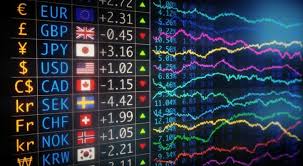
When embarking on the journey of Forex trading, one of the most critical decisions you will encounter is choosing a suitable platform for forex trading Trading Platform CM. The platform serves as your gateway to the forex market, providing you with the necessary tools, resources, and access to trade currency pairs. As the foreign exchange market operates 24 hours a day, seven days a week, the choice of platform can significantly influence your trading success. In this article, we will explore various factors that you need to consider to find the best trading platform that suits your needs.
Understanding Forex Trading Platforms
Forex trading platforms are software applications that allow investors to conduct their trades in the foreign exchange market. They provide tools for analyzing price charts, executing trades, and managing accounts. Platforms can vary in terms of features, functionality, user interface, and accessibility, making it imperative for traders to do their due diligence.
Key Features to Consider
User Interface and Usability
The first feature to consider is the platform’s user interface. A clean, user-friendly interface enhances your trading experience by reducing the time it takes to execute trades and analyze market trends. Look for platforms that offer intuitive navigation and customizable layouts. Additionally, a platform with mobile accessibility allows you to trade on the go, providing added flexibility.
Charting and Technical Tools
Forex trading is heavily reliant on technical analysis. Therefore, a good platform should come equipped with a variety of charting options, indicators, and analysis tools. Look for platforms that allow you to customize charts and incorporate multiple technical indicators to aid your decision-making process.
Order Types and Execution Speed

Different trading strategies require different types of orders. Make sure the platform supports various order types, including market, limit, stop-loss, and trailing stop orders. Execution speed is equally important; delays in trade execution can lead to missed opportunities in a fast-moving market. Research the platform’s execution notice to ensure it meets your trading needs.
Market Research and Educational Resources
A comprehensive trading platform should offer access to up-to-date market research, news feeds, and educational resources. Some platforms provide market analysis reports and webinars to help traders stay informed on market dynamics. Beginner traders, in particular, will benefit from resources that explain trading strategies, technical analysis, and risk management.
Security Features
Security is paramount when it comes to online trading. Ensure the platform employs advanced security measures, such as encryption and two-factor authentication (2FA), to safeguard your personal and financial information. Regulatory compliance is another aspect to consider; choose a platform regulated by recognized entities, which demonstrates its commitment to maintaining a secure trading environment.
Types of Forex Trading Platforms
Forex trading platforms can be categorized into three main types: web-based platforms, desktop platforms, and mobile platforms.
Web-Based Platforms
These platforms are accessed through a web browser, which means they do not require any downloads or installations. Web-based platforms are ideal for those who prefer trading from different devices without the need to install software. They typically offer essential trading features, making them suitable for beginner traders.

Desktop Platforms
Desktop platforms are software applications that traders must download and install on their computers. They usually offer advanced features, including comprehensive charting tools and various order types. These platforms are excellent for active traders and professionals who need robust functionalities.
Mobile Platforms
Mobile trading platforms allow traders to manage their accounts from smartphones or tablets. These platforms usually mirror the features of desktop and web-based platforms, providing traders with the flexibility to trade on the go. With the increasing importance of mobile trading, having a reliable mobile app can be a significant advantage for traders.
Broker Support
Another aspect to consider when choosing a forex trading platform is the level of customer support provided by the broker. Forex trading can be complex, and having access to responsive customer service can be invaluable, especially during trading hours. Look for brokers that offer multiple support channels, including live chat, email, and phone support, and check for testimonials regarding their service quality.
Costs and Fees
Different forex trading platforms have different fee structures, and these can affect your trading profitability. Common costs include spreads, commissions, and withdrawal fees. Some platforms may advertise “zero commission” trading but compensate by widening the spreads. Be sure to read the fee schedule carefully and calculate how these costs will impact your overall trading strategy.
Conclusion
Choosing the right platform for forex trading is a crucial step that can significantly impact your trading journey. As you explore various platforms, keep in mind the features that matter most to you, such as ease of use, security, and available educational resources. Take the time to research and compare different options to ensure that your chosen platform aligns with your trading goals and preferences. With the right tools at your disposal, you will be well-equipped to navigate the complexities of the forex market successfully.